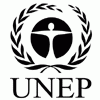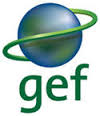Community / Land projects / Seventh Operational Phase of the GEF Small Grants Program in Sri Lanka
Seventh Operational Phase of the GEF Small Grants Program in Sri Lanka

€1542361.605
01/22 - 01/26
Ativo
This project is part of
Implementing Organisations
Donors
Data Providers
Objectives
To build social, economic, and socio-ecological resilience in Sri Lanka of Knuckles Conservation Forest and its buffer zone, the coastal region from Mannar Island to Jaffna, and the Colombo urban wetlands through community-based activities for global environmental benefits and sustainable development
Other
Note: Disbursement data provided is cumulative and covers disbursement made by the project Agency.
Target Groups
The durability of the multiple global environmental benefits generated through the community-driven interventions in the project landscapes will largely depend upon sustained socioeconomic benefits for local communities. Introduction and adoption of income generating measures. At the local level, increased income generating measures and economic incentives will be promoted that give local communities reason to adopt them, and these measures will generate economic benefits to the communities in the short as well as longer term in order to be considered sustainable. The technologies and approaches promoted are expected to increase land productivity and enhance food security.Support community development, particularly those initiatives that contribute towards generating environmental benefits. There are 36 villages within Knuckles conserved forest and its buffer zone. Access to most of these villages is difficult, and there are very few opportunities for income generation avenues in those villages. Large numbers of men, especially the younger generations, leave villages to find other income generating means, mostly as unskilled labour. Similar situations have been observed in the communities of Mannar landscape, as well. This situation leads to a fragile family structure, with only women with children and elderly people remaining in the villages. The project will address this issue by targeting income generating programmes, e.g., eco-tourism, small scale social entrepreneurship, green agro-business etc., especially for women, youth, elderly, people with disabilities, and other marginalized groups. Normal 0 false false false en-US X-NONE X-NONE /* Style Definitions */ table.MsoNormalTable {mso-style-name:"Table Normal"; mso-tstyle-rowband-size:0; mso-tstyle-colband-size:0; mso-style-noshow:yes; mso-style-priority:99; mso-style-parent:""; mso-padding-alt:0in 5.4pt 0in 5.4pt; mso-para-margin:0in; mso-pagination:widow-orphan; font-size:10.0pt; font-family:"Calibri",sans-serif; mso-bidi-font-family:"Times New Roman";} Increased access and adoption of new technologies for sustainable livelihoods. The communities in all three landscapes are lacking in new knowledge and technologies for farming and other non-agricultural activities leading to poor productivity and inferior quality. Inappropriate technologies are low in efficiency and harmful to the sustainability of production systems and the environment. Providing communities with new knowledge and suitable technologies will improve productivity while strengthening sustainability. This will lead to adoption of new income generating avenues. Enhanced access to micro finance facilities to women entrepreneurs. Poor access to financial facilities is another drawbacks identified especially in the development of small-scale entrepreneurship in green, agro-based industries. Securing a loan from commercial banks is a herculean task for these communities, as they do not possess required knowledge and are unfamiliar with the processes. Therefore, most of the community members – particularly women – use unauthorized micro credit facilities or pawn their valuables to obtain their financial needs. Facilitating partnerships through the multi-stakeholder landscape platforms, delivering capacity building on improving financial management skills, and disseminating information on available financing options for local community organizations will help enhance small-scale entrepreneurship. Capacity development and women’s empowerment. Capacity building is one of the pillars of the SGP. Capacity building activities will be implemented based on a training-of-trainers approach through farmer field schools, etc., which are considered more sustainable. Once the new technologies are adopted it is expected that farmers will continue to innovate and apply them, achieving greater profitability while at the same time generating environmental benefits.New entrepreneurships and access to new markets. Project interventions will improve the community products and services which are already available in the landscape and will assist in developing small-scale entrepreneurship with improved market channels, including local and international markets. This intervention aims at removing interference by intermediaries in the value chain, so that the benefits will be directly transferred. Eco-tourism. Each of the project landscapes has been identified by the government as eco-tourism destinations. The project will capture the potential for ecotourism, which will assist communities to increase their income in this sector. The project will also work with government line agencies as well as the private sector to develop ecotourism, so that the communities receive benefits directly.Improved well-being. Home gardening and good agricultural practices (GAP) are the two main aspects related to agroecosystems. These two approaches will be promoted to produce healthy and safe foods. Under these programmes, new water saving technologies will be introduced to the farming communities, so that the communities and their agricultural production are more resilient to climate change. Both these programmes will reduce the use of agro-chemicals, resulting in production of safe food for the home community as well as for the market. Improved land productivity through SLM and availability of quality green products. The project will promote sustainable land management (SLM) practices in all landscapes using farmer Field Schools. It was also revealed during discussions with the farmers that the majority of them do not pay much attention to land levelling and good tillage practices due to financial constraints. Inadequate land levelling leads to inefficient use of irrigation water, fertilizers and pesticides. The impact of drought and floods too can be severe in improperly levelled paddy fields. The project is relevant with respect to several of the Sustainable Development Goals (SDGs), most notably SDG 1 (No Poverty), SDG 2 (Zero Hunger), SDG 5 (Gender Equality), SDG 11 (Sustainable Cities and Communities), SDG 12 (Responsible Consumption and Production), SDG 13 (Climate Action), SDG 14 (Life below Water), SDG 15 (Life on Land), and SDG 17 (Partnerships for the Goals, as outlined below in Table 2 of the Project Document. Table 2 of the Project Document: Project contributions towards Sustainable Development Goals Normal 0 false false false en-US X-NONE X-NONE /* Style Definitions */ table.MsoNormalTable {mso-style-name:"Table Normal"; mso-tstyle-rowband-size:0; mso-tstyle-colband-size:0; mso-style-noshow:yes; mso-style-priority:99; mso-style-parent:""; mso-padding-alt:0in 5.4pt 0in 5.4pt; mso-para-margin:0in; mso-pagination:widow-orphan; font-size:10.0pt; font-family:"Calibri",sans-serif; mso-bidi-font-family:"Times New Roman";}




